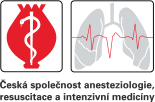Anest. intenziv. Med. 2002;13(4):165-169
Initial Antibiotic Therapy of Bacterial Diseases at Patients in Intensive Care UnitsArticles
- 1 Ústav mikrobiologie LF UP a FNO, přednosta doc. MUDr. D. Koukalová, CSc.
- 2 Klinika anesteziologicko-resuscitační LF UP a FNO, přednosta MUDr. O. Marek
- 3 Interní klinika 2. LF UK, přednosta doc. MUDr. M. Kvapil, CSc.
Early application of antibiotic regimen represents an important part of the complex therapy of bacterial infections in critically ill patients,so thereis not possible to wait till the results of microbiological cultivation tests are available.However,an optimum schedule of initial antibiotic therapy canbe chosen basing on the knowledge of the local prevailing bacterial agents and their resistance against antimicrobial drugs.Crucial points is the indication of antibiotic therapy,as it is to be considered as a risk factor in the selection of bacterial strains with higher degreeof primary resistance (e.g.enterococci,Pseudomonas aeruginosa,Acinetobacter baumannii,Stenotrophomonas maltophilia),as well as bacteria withsecondary,acquired resistance (e.g.methicillin-resistant strains of staphylococci,enterobacteria with the production of wide-specter β -lactamases).These multiresistant bacterial strains often reveal also a higher degree of pathogenity.Therefore,the antibiotic therapy should be limited to clinicallyproved bacterial infections,event.to highly probable ones.An application of antimicrobial preparations merely out of the reason of so-called"patient-covering "must be refused as unsubstantiated and risky.
Keywords: intensive care; bacterial infections; initial antibiotic therapy
Published: August 1, 2002 Show citation




